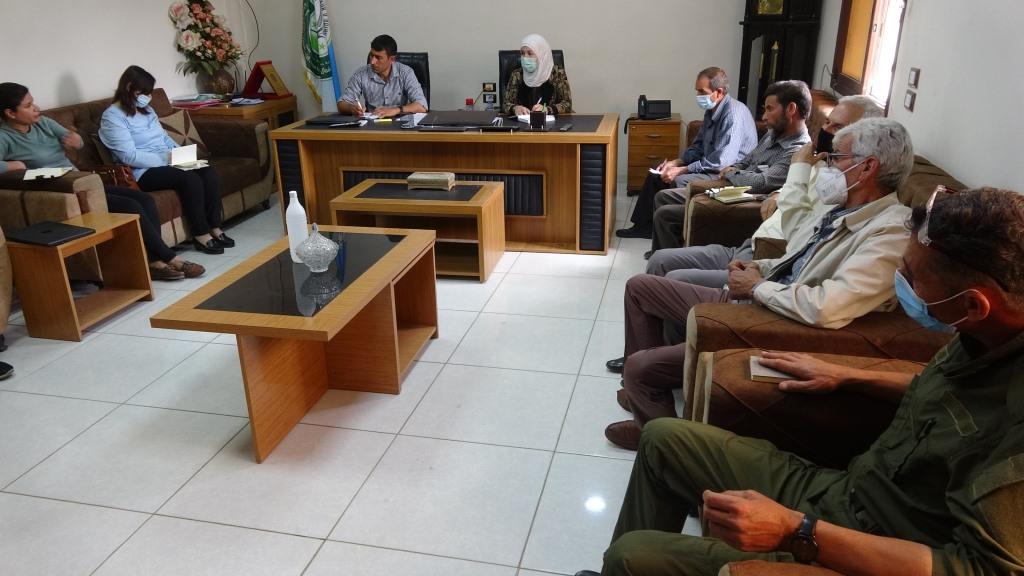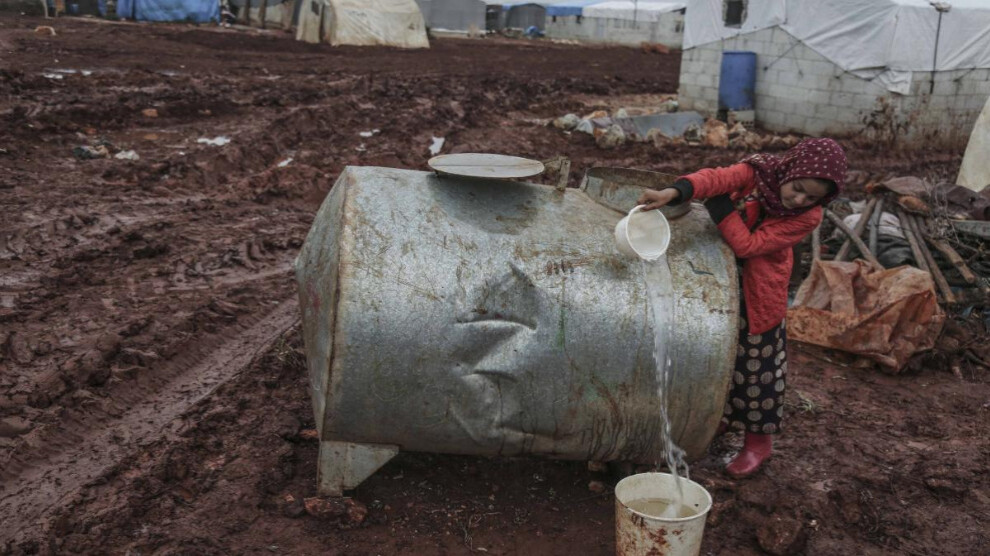Heseke Canton Council declared state of emergency on Monday after an emergency meeting over water outage at the Allouk Station in Turkish-occupied Serekaniye (Ras-Al-Ain) which supplies drinking water for the canton.
The meeting was participated by co-chairs of Heseke Canton Council, Semer El Ebdullah and Xebat Silêman, co-chair of Water Directorate of Heseke, Sozdar Ehmed, deputy co-chairs of Heseke Canton Council, Meha Şabo and Mehmud Reşo, co-chairs of district councils, Internal Security forces and members of the Committee of Agriculture.

After a discussion of the water crisis, participants ended the meeting with a declaration of state of emergency on the purpose of organising precautions required to supply drinking water for citizens.
In the forthcoming period, emergency teams, through communes, will distribute water in barrels to citizens according to public needs and available sources.
Sozdar Ehmed, co-chair of the Water Directorate of Heseke, reported that Allouk water station has been out of service since April 12th after the plant supplying power to Allouk station burned down due to overload and looting by mercenaries. Respective departments in Heseke have resolved the power problem but mercenary gangs do not allow the power plant to process properly.
Sozdar stated that the water station is currently out of service after a military officer of the occupant Turkish army restricted the supply to only 4 water-wells and one pump. He pointed out that only a few villages under invasion could receive water while the center of Heseke could not.
Heseke Canton Council and Water Directorate called upon international human rights organisations to take immediate action and intervene the Turkish state’s acts to prevent an imminent humanitarian crisis for over two million citizens, immigrants and refugees.
Participants warned that the water crisis may cause extensive disasters, especially in a period of ever-increasing coronavirus cases in the region.
RELATED NEWS:















